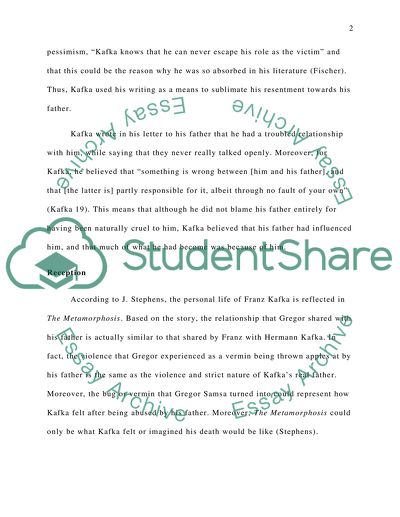Cite this document
(“Modern European Literature: Research Portfolio of Franz Kafkas The Essay”, n.d.)
Retrieved from https://studentshare.org/literature/1495174-modern-european-literature-research-portfolio-of-franz-kafkas-the-metamorphosis
Retrieved from https://studentshare.org/literature/1495174-modern-european-literature-research-portfolio-of-franz-kafkas-the-metamorphosis
(Modern European Literature: Research Portfolio of Franz Kafkas The Essay)
https://studentshare.org/literature/1495174-modern-european-literature-research-portfolio-of-franz-kafkas-the-metamorphosis.
https://studentshare.org/literature/1495174-modern-european-literature-research-portfolio-of-franz-kafkas-the-metamorphosis.
“Modern European Literature: Research Portfolio of Franz Kafkas The Essay”, n.d. https://studentshare.org/literature/1495174-modern-european-literature-research-portfolio-of-franz-kafkas-the-metamorphosis.


